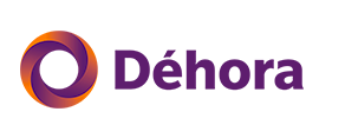News from Members
Home-office unavoidable during Coronavirus? A good moment to reflect on the flexibility of your organization
Read more about this topic in the article bellow prepared by Déhora, a member of the CDCC.
Due to the Coronavirus or COVID-19 reaching a pandemic status, manycompanies have recently instructed (obligatory) work-from-home policies.
 But even before these challenging times, home office had already been steadily gaining popularity worldwide. While it is considered, for instance, an important benefit embedded in the HR policies of numerous companies in the Netherlands, many employees in the Czech Republic are now also forced to work from home for the first time. We posed the question to Dutch Workforce Management and Planning company Déhora and asked: Can this be effective?
But even before these challenging times, home office had already been steadily gaining popularity worldwide. While it is considered, for instance, an important benefit embedded in the HR policies of numerous companies in the Netherlands, many employees in the Czech Republic are now also forced to work from home for the first time. We posed the question to Dutch Workforce Management and Planning company Déhora and asked: Can this be effective?
Even though for the management of many businesses, both large and small, the Coronavirus outbreak means economic loss, insecurity, worries for the future, it also presents an (enforced) opportunity for reflection. It could be that the pandemic has created a unique opportunity to make companies as well as employees think about how important adaptability of their organization is.
Adaptability /pro-activity of your company
How well is your company equipped to deal with unexpected situations, or, in other words, how flexible is your organization? Change is inevitable and it is preferable to be able to anticipate and act proactively, instead of reacting to current (and ever-changing) situations. A crisis brings a chance for change and better preparation for the future.
Home-office as part of a company´s flexibility strategy
‘The possibility for home-office is merely an aspect of being adaptable,’ says Linda Veenman, Trainer and Consultant for Déhora Academy – Déhora´s accredited training institute. Raised bilingually by a Dutch father and Czech mother and having various work experiences in both countries, she knows what it means to work flexibly from any location (whether that is from home, at a client company or from the regular office). It requires organization, responsibility, and mutual trust. ´It definitely helps when a company has clear policies and procedures in place. ´
Change management is always challenging, yet, in crisis situations such as the current Coronavirus, it is essential to realize that, as a company, you need to know how to be flexible and prepared. While home-office seems like an occasional benefit to many Czechs, it functions best as a part of a company´s overall strategic flexibility.
´Strategic flexibility means that an organization is able to identify variations in, for example, their workload fluctuations (seasonal, monthly, weekly, daily, etc) and can swiftly react to these changes, manage its staff availability, and thus cut costs accordingly,´ she explains. Besides having home office guidelines and policies, more flexibility can be added by defining the amount of (flexible) temporary staff vs. fixed staff, working with labor time accounts and clear staff scheduling methodologies.
Regarding planning support tools, internationally broadly used effective software is now also available in the Czech language. These tools need to be implemented professionally as part of an optimization process, where establishing the current situation of a company is the first step.
Home office advice
So what advice can we give to organizations for whom home office is a new phenomenon?
Getting organized is key. This means encouraging home office workers to plan their days as they normally would, including them getting dressed and starting at the time they are used to. Also, they should plan breaks and set fixed start and end times to their worktime to make efficient use of their day.
It is important to stay in close regular communication, to ensure that they stay on track, motivated and structured. Also, from a more personal point of view, it is important to stay in contact to avoid them building up feelings of loneliness in longer periods of continual home-office.
Calls at fixed times, in the morning or afternoon are recommended to monitor the day´s development and curtail problems before they gain momentum.
Part of being effective is a suitable working environment. Not everybody has the space for a real home office, however, creating a work-corner somewhere is better than working from bed. If it is comfortable, even a kitchen table will do. For those who have children – boundaries on when and when not to be disturbed, are also important.
It is often beneficial to have an outsider´s specialist view on your organization to help you establish the current state of affairs and set strategies for improvement.

